Politics
Ties thaw between Asian rivals India and China
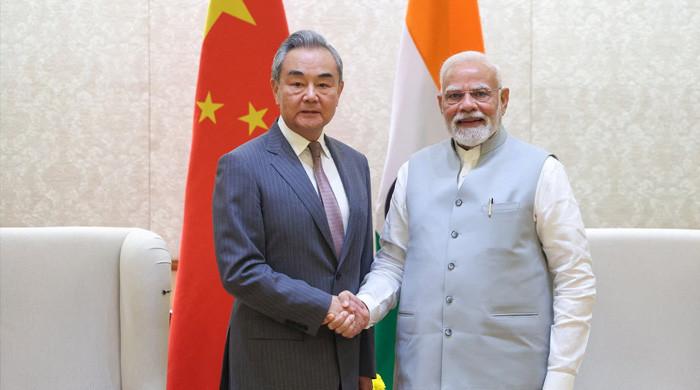
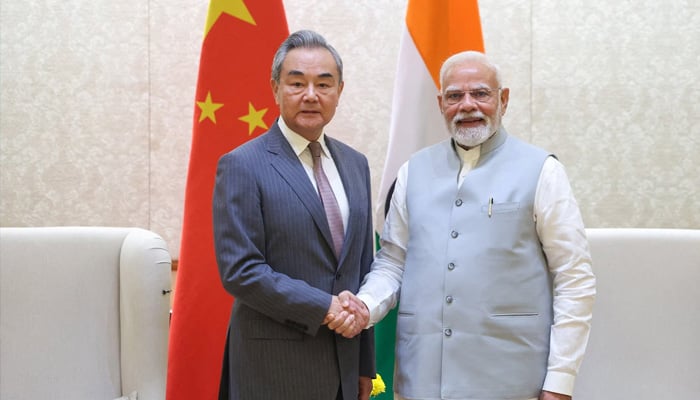
- Development comes against backdrop of US tariffs on New Delhi.
- Modi is on his first visit to China in seven years to attend SCO bloc.
- Regional security bloc, whose members also include Russia and Iran.
Indian Prime Minister Narendra Modi is expected to hold talks with Chinese President Xi Jinping on Sunday, as ties between the Asian rivals thaw against the backdrop of US President Donald Trump’s imposition of punitive tariffs on New Delhi.
Modi is on his first visit to China in seven years to participate in the summit of the Shanghai Cooperation Organisation (SCO) regional security bloc, whose members also include Russia and Iran.
Modi’s visit is the first since a deadly 2020 clash between Indian and Chinese troops on their disputed Himalayan border. The neighbours share a 3,800 km (2,400 miles) border that is poorly demarcated and has been disputed since the 1950s.
Here is a timeline of the thaw in ties since the military standoff began five years ago:
2020: At least 20 Indian soldiers and four Chinese troops are killed in hand-to-hand combat in the Galwan Valley in Ladakh, northern India, in June 2020.
The same year, New Delhi heightened scrutiny of investments from China, banned popular Chinese mobile apps and severed direct passenger air routes.
December, 2022: Minor border scuffles between Indian and Chinese troops break out in the Tawang sector of India’s northeastern state of Arunachal Pradesh, which is also claimed by China as part of southern Tibet.
August, 2023: Modi and Xi meet in Johannesburg on the sidelines of a summit of the BRICS grouping of nations and agree to intensify efforts to disengage and de-escalate tensions.
September 2024: Indian Foreign Minister Subrahmanyam Jaishankar, speaking at an event in Geneva, says about 75% of the “disengagement” problems at India’s border with China had been sorted out.
India’s aviation minister also indicates a thaw in the standoff, writing in a post on X that the two countries had discussed early resumption of direct passenger flights on the sidelines of the Asia-Pacific Ministerial Conference on Civil Aviation in Delhi.
October 2024: Both nations reach a deal on patrolling their disputed frontier to end the military stand-off.
Modi and Xi hold their first formal talks in five years on October 23 in Russia on the sidelines of a BRICS summit.
The leaders agreed to boost communication and cooperation between their countries and resolve conflicts to help improve ties.
December 2024: Indian National Security Adviser Ajit Doval travels to China to hold first formal talks with Foreign Minister Wang Yi on the border issue after the October agreement.
Doval and Wang are designated as special representatives by their countries for discussing the border issue.
January 2025: Wang and India’s Foreign Secretary Vikram Misri hold talks in China. Both sides agree to resume direct air services and work on resolving differences over trade and economic issues.
April 2025: Chinese embassy spokesperson says India and China should stand together to overcome difficulties in the face of tariffs imposed by Trump’s administration.
July 2025: Jaishankar makes first visit to China in five years, says India and China must resolve border friction, pull back troops and avoid “restrictive trade measures” to normalise their relationship.
Reuters reports that the Indian government’s top think tank has proposed easing rules that de facto require extra scrutiny for investments by Chinese companies.
August 2025: Wang tells his Indian counterpart while on a visit to New Delhi that China and India should establish “correct strategic understanding” and regard each other as partners, not rivals.
Later in the month, Chinese ambassador Xu Feihong says at an event in New Delhi that China opposes Washington’s steep tariffs on India and will “firmly stand with India”.
Politics
World reacts to martyrdom of Iran’s Supreme Leader Khamenei
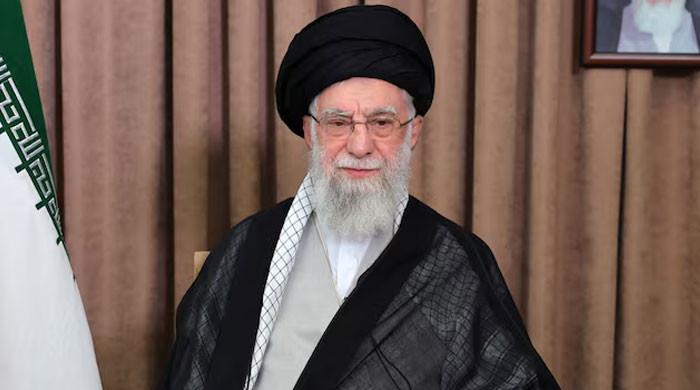
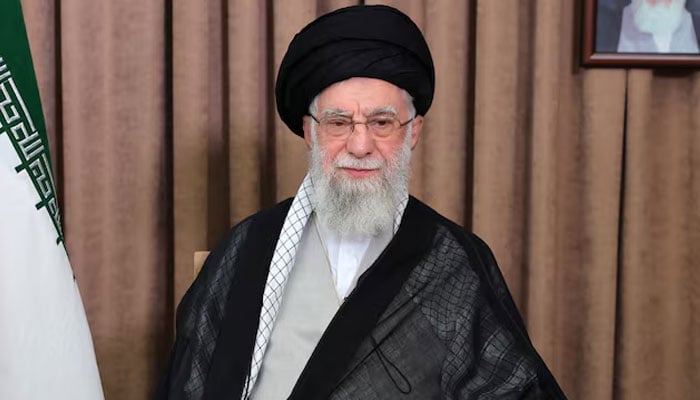
Iran’s Supreme Leader Ayatollah Ali Khamenei was martyred in US and Israeli strikes, state media confirmed, as another wave of attacks hit the country on Sunday.
Several countries, global bodies and prominent groups responded to the assassination of Iran’s supreme leader, urging de-escalation.
Pakistan
Prime Minister Shehbaz Sharif on Sunday denounced the targeting of Iran’s supreme leader in joint strikes by the United States and Israel, saying such actions were a “violation of the norms of international law”.
In a post on X, PM Shehbaz said that it was an age-old convention that the heads of state or government should not be targeted.
“Pakistan also expresses concern over the violation of the norms of international law. It is an age-old convention that the heads of state/government should not be targeted.”
Russia
President Vladimir Putin described Khamenei’s killing as a “cynical murder” that violated “all standards of human morality and international law”.
“Please accept my deep condolences in connection with the murder of the Supreme Leader of the Islamic Republic of Iran, Seyed Ali Khamenei, and members of his family, committed in cynical violation of all norms of human morality and international law.”
China
China said it “strongly condemns” the United States and Israel’s assassination of Iran’s Supreme Leader Ayatollah Ali Khamenei, calling again for a halt to military actions.
The assassination was “a serious violation of Iran’s sovereignty and security, a trampling on the aims and principles of the UN Charter and the basic norms of international relations”, Beijing’s foreign ministry said in a statement.
“China firmly opposes and strongly condemns this,” it added, calling for an “immediate halting of military operations”.
Malaysia
Malaysian Prime Minister Anwar Ibrahim on Sunday “unreservedly” condemned the killing of Iran’s Supreme Leader Ali Khamenei.
“I unreservedly condemn the killing of Iranian Supreme Leader Ali Khamenei. This act places the Middle East on the edge of grave and sustained instability. I extend my condolences to the Islamic Republic of Iran and to the Iranian people at this profoundly difficult momen,” wrote
Indonesia’s Ulema Muslim Clerical Council
“The Indonesian Ulema Council (MUI) expressed its deepest condolences for the death of Iran’s Supreme Leader, Ali Khamenei, as a result of the Israeli-American attack on February 28.
“The United States, which is playing a central role in managing the Palestinian conflict through the BoP (Board of Peace), faces a major question: is this strategy truly aimed at a just peace, or is it actually strengthening an unequal security architecture and burying Palestinian independence? Therefore, the MUI urges the Indonesian government to revoke its membership from the BoP.”
North Korea
North Korea condemned the US and Israeli strikes as an “illegal act of aggression”.
The attacks “constitute a thoroughly illegal act of aggression and the most vile form of violation of sovereignty in their nature”, a Ministry of Foreign Affairs spokesperson said, according to state media.
Iranian president
“The martyrdom of the Supreme Leader at the hands of Israel and the criminal America was a great disaster for our country… America and Israel should know that it will bring them nothing but embarrassment.”
Politics
IRGC Claims Missile Strikes on US Aircraft Carrier Amid Escalation


Iran’s Islamic Revolutionary Guard Corps (IRGC) on Sunday claimed it had launched ballistic missile strikes targeting a US aircraft carrier, identifying the vessel as the USS Abraham Lincoln, as part of what it called “Operation True Promise 4.”
In a statement, the IRGC’s public relations office said four ballistic missiles were fired at the carrier, adding that Iran’s military campaign had entered a “new phase.” The group warned that both land and sea would become the “burial place” for what it described as aggressors.
Multiple Waves of Strikes Announced
Earlier, the IRGC said it had launched the seventh and eighth waves of strikes under the same operation, in response to what it termed ongoing aggression by the United States and Israel.
Iran claimed it had carried out precision strikes on military targets in Israeli territory, including areas near Tel Aviv and Haifa. It also alleged that Israeli officials had taken shelter due to heightened security concerns.
Targets Across the Gulf
The IRGC further stated that it had targeted US-operated facilities in West Asia, including the US Fifth Fleet base in Bahrain, as well as installations in Qatar and the United Arab Emirates.
There has been no immediate confirmation from US or Israeli officials regarding the reported missile strikes or the extent of any damage.
Rising Regional Tensions
The developments mark a sharp escalation in regional tensions following reported military exchanges between Iran, Israel and US forces over the weekend.
Independent verification of the claims remains pending, and international observers have urged restraint amid fears of a broader conflict across the Middle East.
Politics
Key Iranian figures martyred in US-Israel military strikes
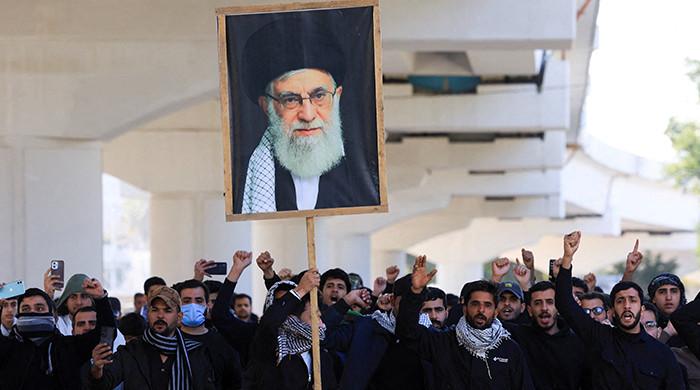
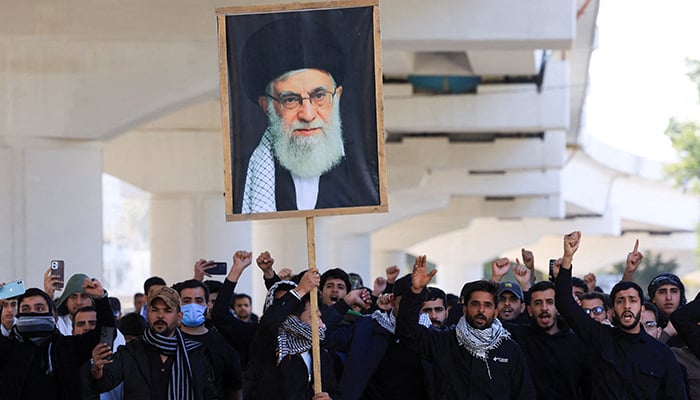
A number of Iranian senior leaders, including Supreme Leader Ayatollah Ali Khamenei, have embraced martyrdom in the “unprovoked and unwarranted” airstrikes by Israel and the United States.
As crowds gathered in Tehran, explosions rang out, and the Israeli military announced that it was again striking targets in the heart of the city — as more blasts were heard in Jerusalem, Riyadh, Dubai, Doha and Manama.
Iran’s President Masoud Pezeshkian declared Khamenei’s assassination a “declaration of war against Muslims” and warned: “Iran considers it its legitimate duty and right to avenge the perpetrators and masterminds of this historic crime.”
Iranian state media have confirmed the killing of several senior figures:
1. Ayatollah Ali Khamenei, supreme leader of Iran
2. Ali Shamkhani, representative of the Supreme Leader in the Supreme Defence Council
3. General Abdolrahim Mousavi, Iran’s Armed Forces chief of staff
4. Major General Mohammad Pakpour, commander-in-chief of the Islamic Revolution Guards Corps (IRGC)
5. Aziz Nasirzadeh, Minister of Defence
6. Gholamreza Rezaian, police intelligence chief of Iran
Separately, the daughter, son-in-law, and granddaughter of Ali Khamenei also embraced martyrdom in the US and Israeli airstrikes.
-

 Politics1 week ago
Politics1 week agoPakistan carries out precision strikes on seven militant hideouts in Afghanistan
-

 Business1 week ago
Business1 week agoEye-popping rise in one year: Betting on just gold and silver for long-term wealth creation? Think again! – The Times of India
-

 Tech1 week ago
Tech1 week agoThese Cheap Noise-Cancelling Sony Headphones Are Even Cheaper Right Now
-

 Sports1 week ago
Sports1 week agoKansas’ Darryn Peterson misses most of 2nd half with cramping
-

 Sports1 week ago
Sports1 week agoHow James Milner broke Premier League’s appearances record
-
Sports1 week ago
Mike Eruzione and the ‘Miracle on Ice’ team are looking for some company
-

 Entertainment1 week ago
Entertainment1 week agoViral monkey Punch makes IKEA toy global sensation: Here’s what it costs
-

 Entertainment1 week ago
Entertainment1 week agoSaturday Sessions: Say She She performs "Under the Sun"






